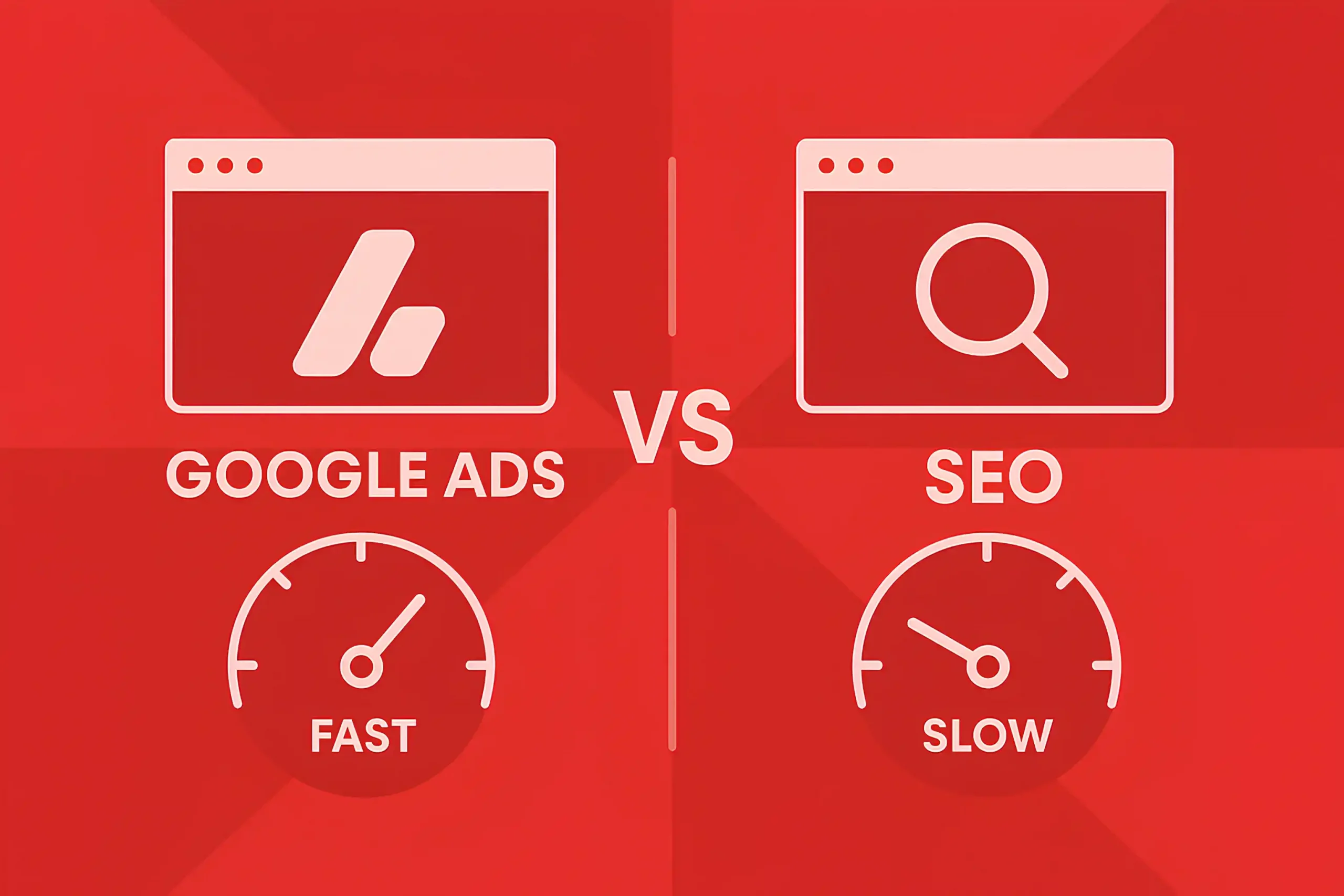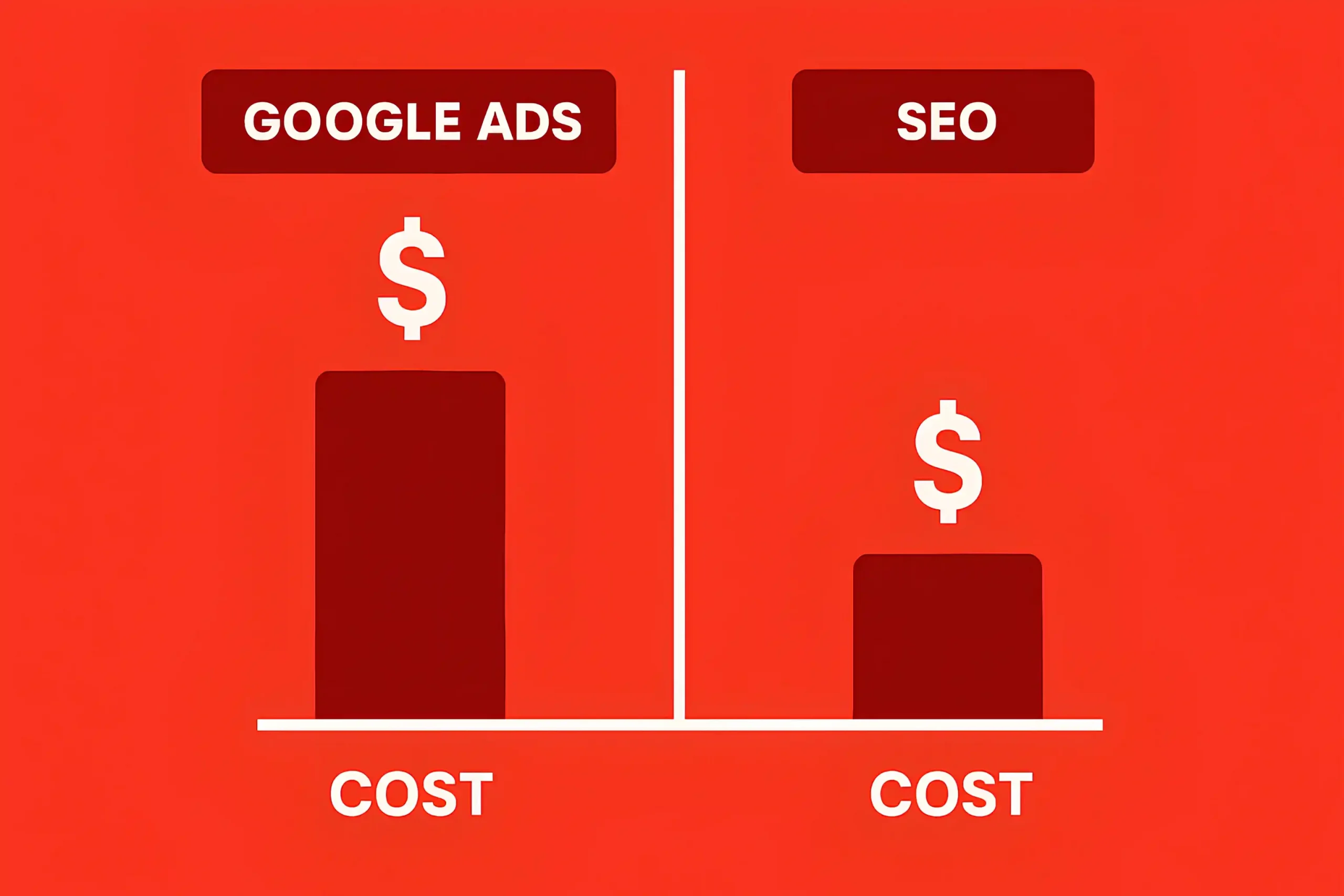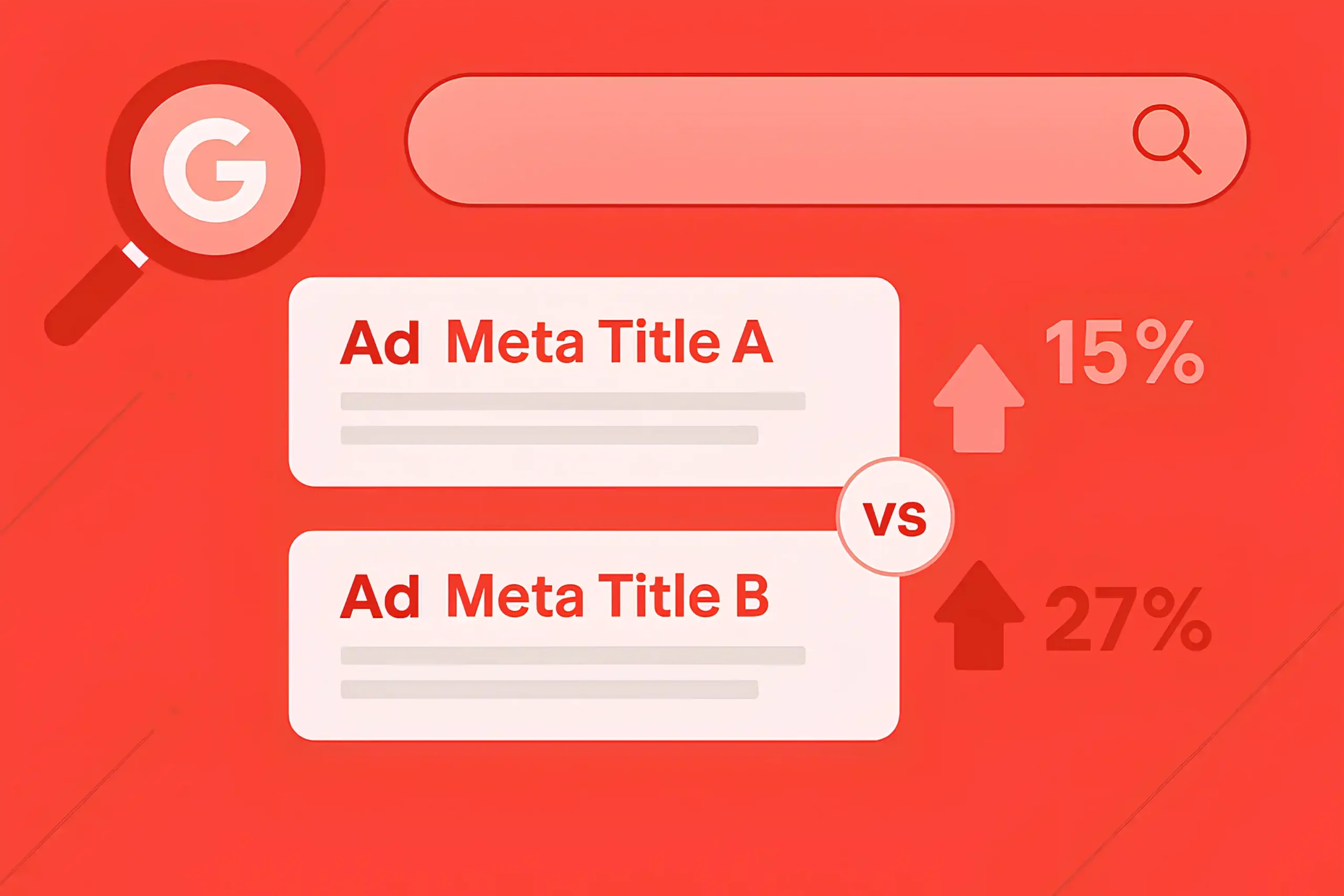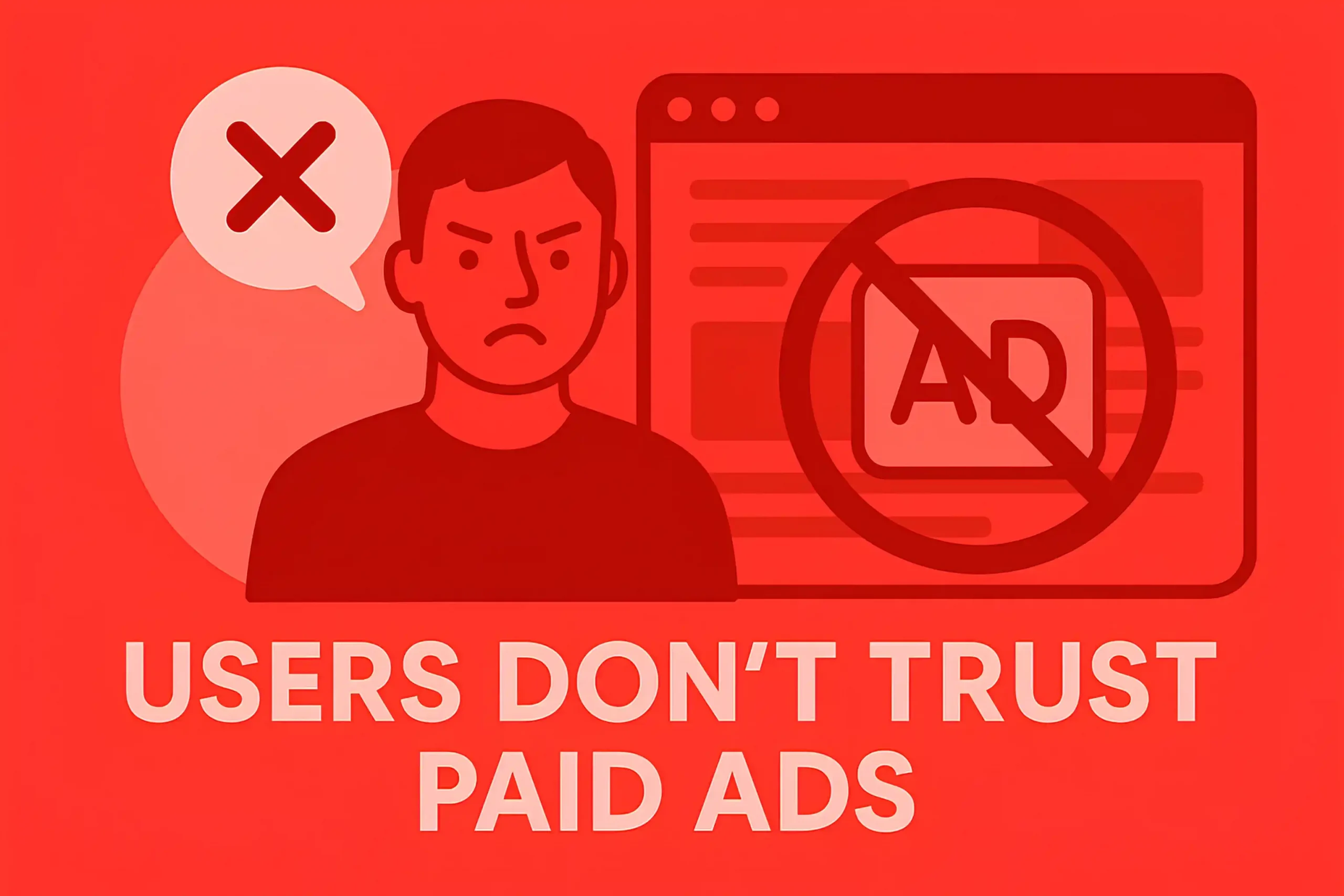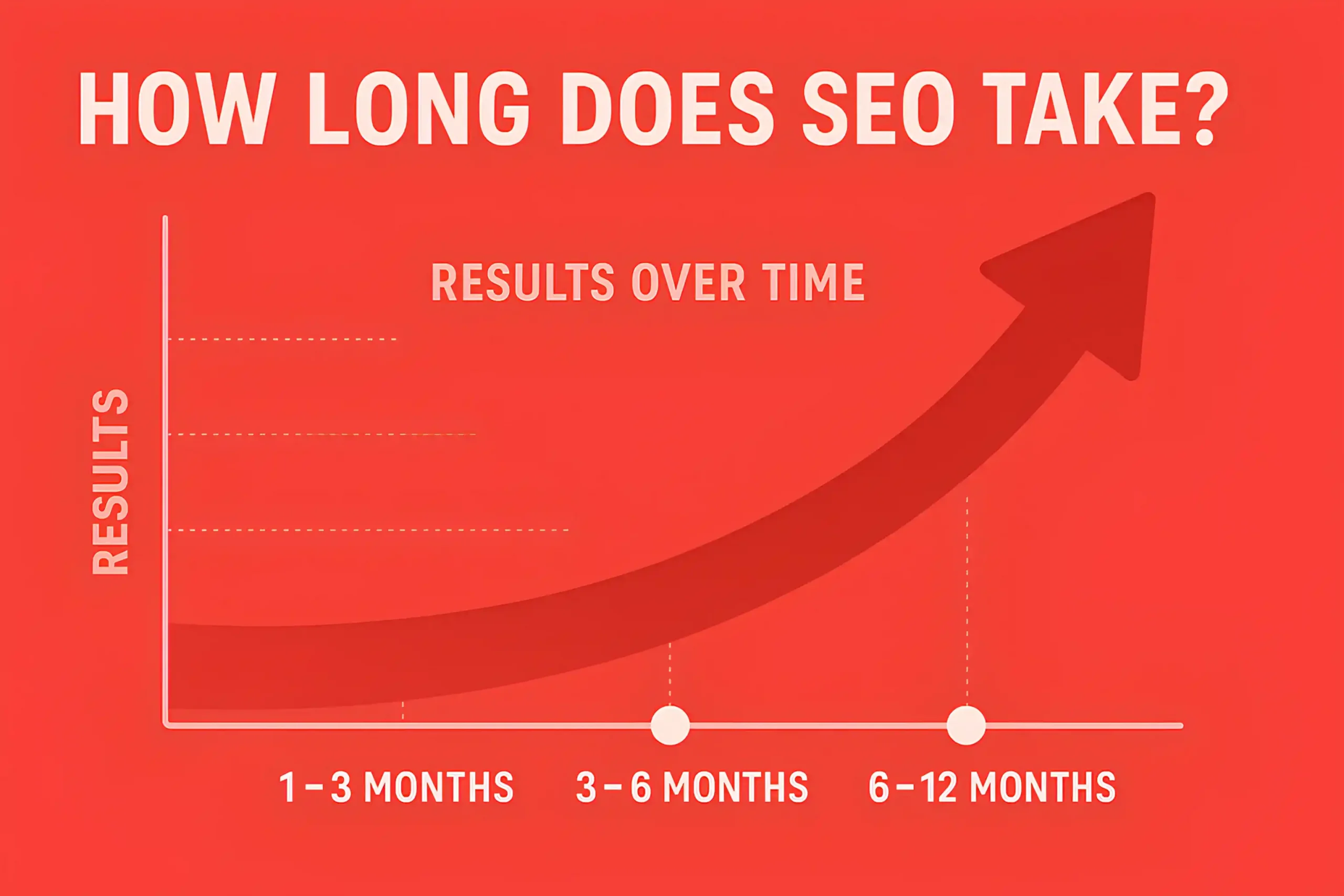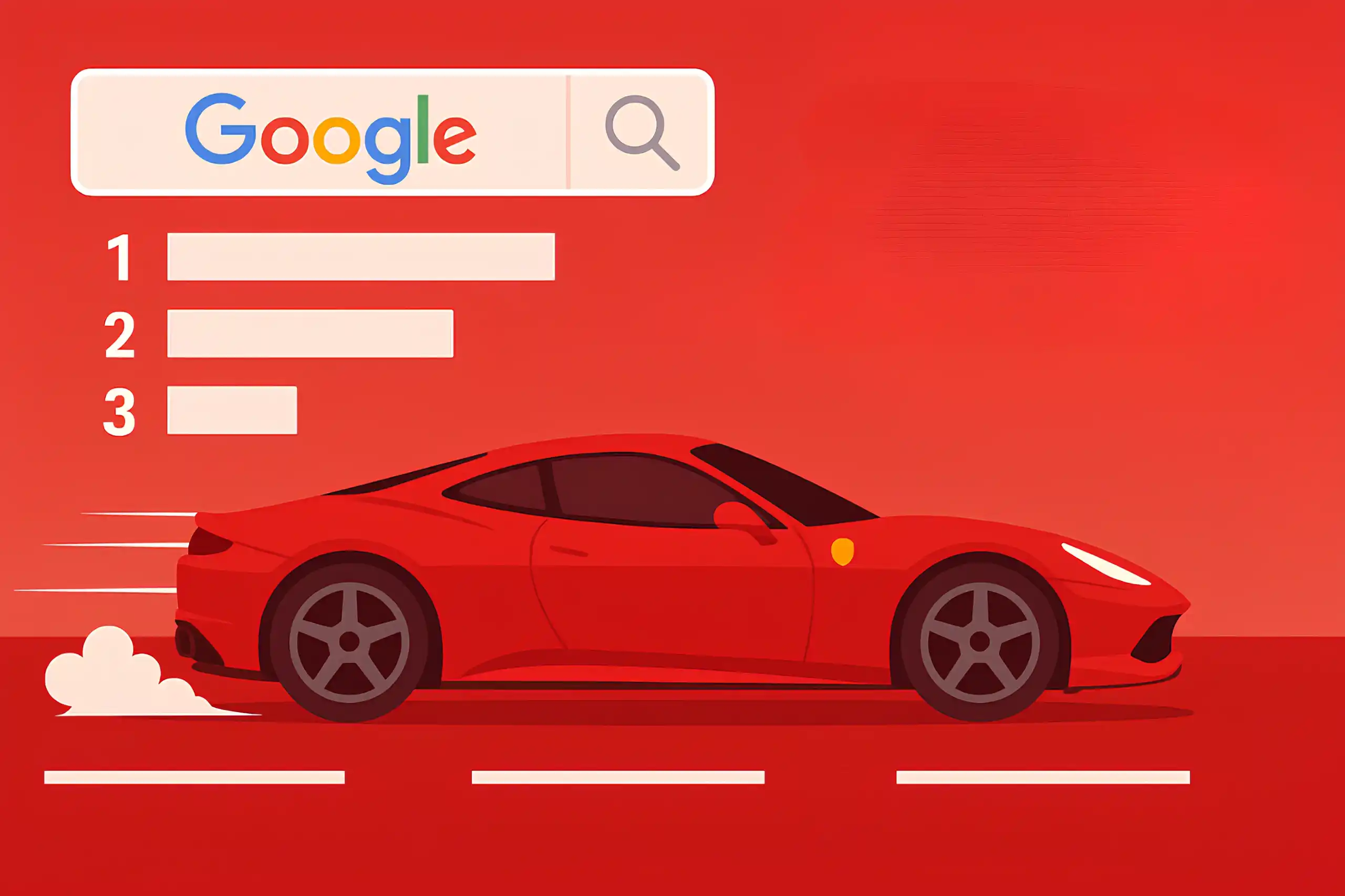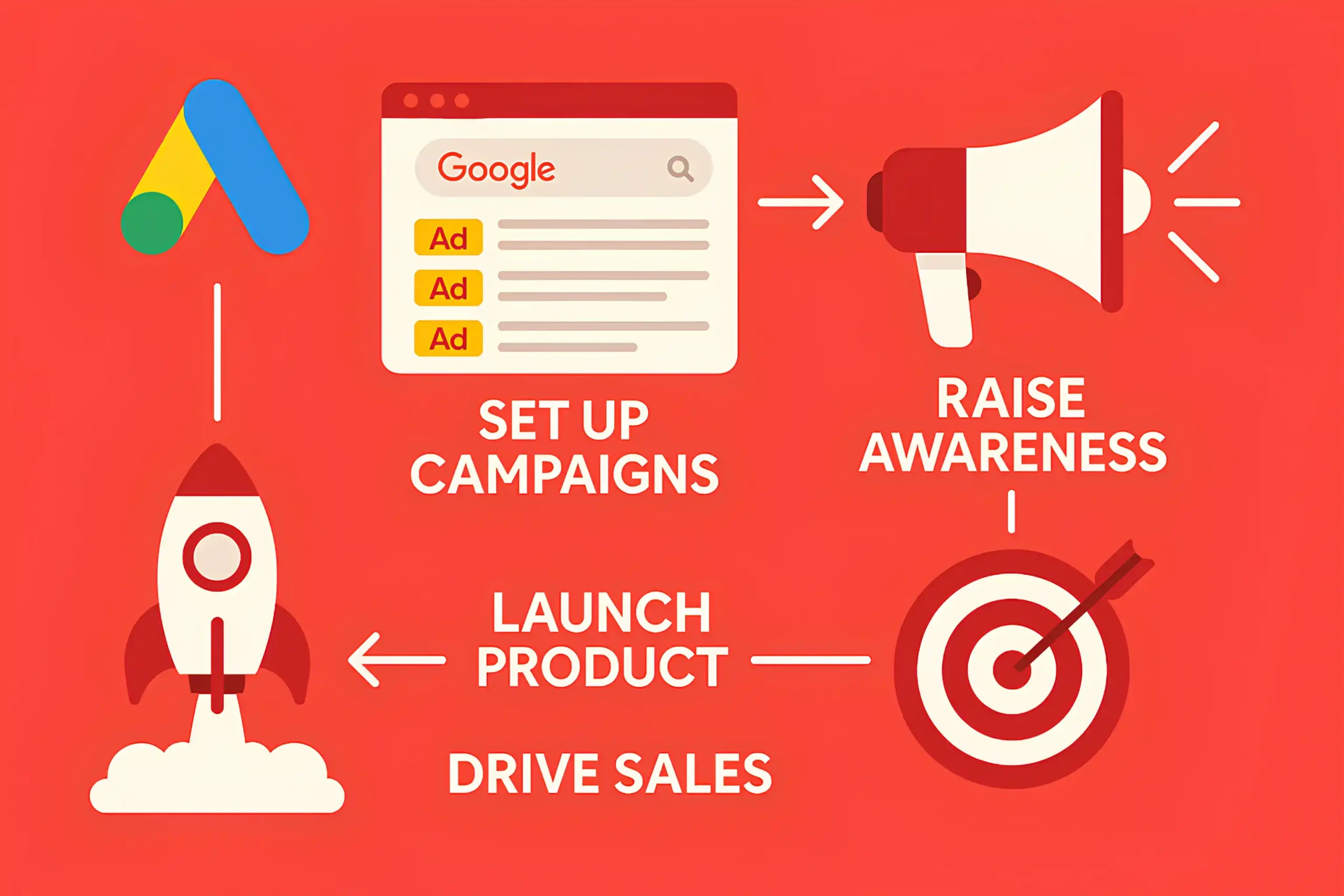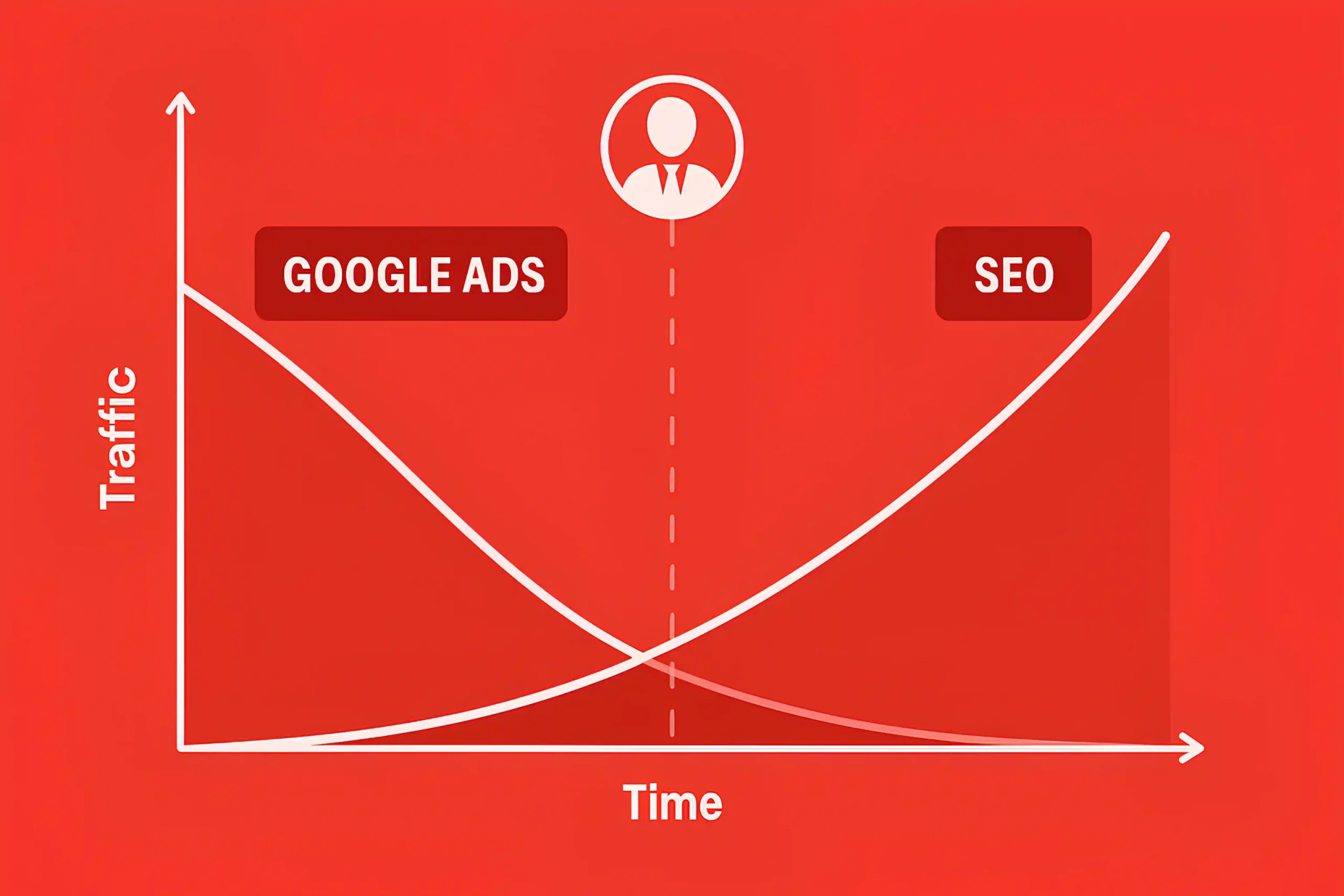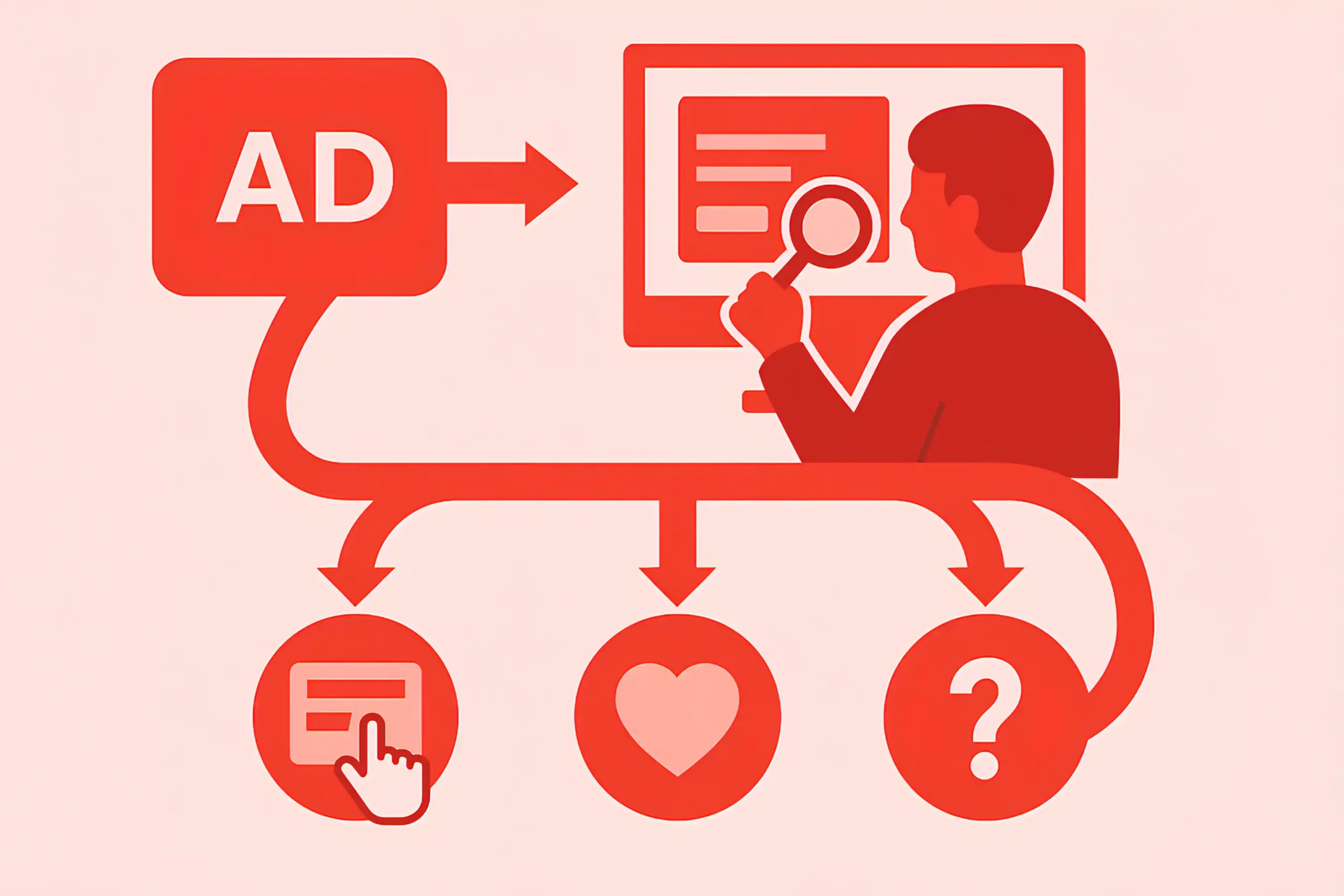Choosing between SEO and PPC has always been one of the biggest questions in digital marketing. Both drive traffic, both can generate leads, and both require investment, but they work in completely different ways.
In 2026, the debate feels sharper than ever as search behavior, ad platforms, and Google’s own AI-driven features continue to impact how businesses get found online. Some companies swear by organic visibility and long-term SEO growth, while others see faster results with pay-per-click campaigns.
Honestly, there’s no single “winner”; it depends on your goals, budget, and timeline. In this guide, I’ll put SEO and PPC face-to-face, breaking down where each shines, where they struggle, and how to decide which path makes the most sense for your business today.
Ready to Scale Your Digital Marketing?
Book a complimentary 30-minute strategy call to discuss your goals and explore how we can assist you.
SEO vs PPC: 2026 Comparison Table at a Glance
When businesses weigh their digital marketing options, SEO and PPC often stand out as the two heavy hitters. Both can drive traffic, leads, and revenue, but they do so in very different ways (As I already said).
Before diving into the detailed breakdown, here’s a quick side-by-side snapshot that highlights where each approach works and where it falls short. Our at-a-glance comparison will give you a clear picture of how SEO stacks up against PPC in terms of cost, speed, long-term value, and overall impact.
| Aspect | SEO | PPC | Best For |
|---|---|---|---|
| Cost Structure | Investment in content, links, and optimization; no cost per click. | Pay for every click; costs vary by keyword competition. | SEO → long-term growth; PPC → quick wins. |
| Timeline for Results | Slow build (3–6+ months) but compounding benefits. | Instant visibility once campaigns go live. | SEO → patient brands; PPC → time-sensitive campaigns. |
| Sustainability | Long-lasting rankings that continue to drive traffic. | Traffic stops as soon as ad spend stops. | SEO → sustainable presence; PPC → short-term pushes. |
| ROI Potential | Higher ROI over time; cost per lead drops after year one. | ROI depends on ad spend efficiency; can be costly long-term. | SEO → cost efficiency; PPC → rapid scaling when budget allows. |
Speed of Results
PPC always wins at first glance. The moment you launch a campaign, your ads can start appearing in front of your target audience within hours (If your ad is approved). That’s why many businesses, especially those with limited time or operating in regions where CPC is relatively low, find PPC appealing.
As the CEO and Founder at NEWMEDIA.COM, I’ve seen small businesses outside the U.S. use it effectively because their cost-per-click is still affordable enough to generate leads quickly. But the picture is completely different once you enter highly competitive industries.
For instance, in fields like legal services, insurance, or SaaS PPC, the average CPC can easily climb past $50 per click, which makes sustaining PPC over the long term a serious challenge.
SEO, on the other hand, takes months to show real results; often, 6 to 12 months before steady results appear, but it builds equity. Unlike PPC, where visibility stops once you pause spending, SEO keeps working. I mean, while PPC gives you instant traffic, SEO builds a foundation that can deliver returns long after the initial investment.
PPC Services
Maximize your ROI with data-driven PPC campaigns that convert.
eCommerce PPC Services
Boost product sales and scale your store with optimized eCommerce PPC.
SEO Services
Outrank your competitors and win more customers with expert SEO.
Technical SEO Services
Fix technical issues and make your site search-engine friendly from the ground up.
Cost Structure and ROI Over Time
When people ask me about SEO versus PPC, I always tell them that the real difference comes out once you start comparing cost structure and long-term ROI. You know, SEO is usually seen as an upfront investment that pays off gradually, while PPC is more like renting visibility; you pay for every single click, and once you stop, the traffic disappears.
But if you break it down, the costs and returns vary wildly depending on your niche, your market, and even your strategy.
For SEO, the average business might spend anywhere between $1,500 and $5,000 per month on ongoing campaigns, but that number doesn’t mean much without context.
In a straightforward niche, let’s say a local home services business, you might get away with spending on content creation, some technical fixes, and a few strong backlinks.
A similar setup can often be managed with simple SEO packages that include content and basic link-building. But if you’re in healthcare, finance, or law, the cost structure looks completely different.
For example, healthcare SEO requires medical experts to write or review content to meet Google’s E-E-A-T standards, which means higher costs per article. Law firms often find themselves investing $10,000+ per month into aggressive PR campaigns, digital PR, and high-quality link-building because one client can bring in tens of thousands in revenue.
In those industries, hiring an SEO agency like NEWMEDIA.COM, that knows how to balance compliance, content, and link authority, isn’t a luxury; it’s survival.
PPC, on the other hand, is deceptively simple at first glance. You can launch a campaign for $500 and start seeing clicks tomorrow. But the problem is, the average cost-per-click in the U.S. across all industries is around $10.22, while legal, finance, and insurance regularly hit $50 to $100 per click.
That means a single client acquisition campaign can burn through thousands of dollars in just days, and unless your ads and landing pages are perfectly optimized, you’ll often spend more before you learn what actually converts.
Of course, there are always exceptions; if you’re running ads in countries where CPC is much lower, or in niches with low competition, PPC can deliver a strong ROI quickly. But in high-ticket industries, it becomes less sustainable without huge budgets and very sharp campaign management.
Stay Ahead in Digital Marketing
Get weekly insights, trends, and actionable tips delivered to your inbox.
What you'll get:
- Weekly marketing insights
- Exclusive case studies
- Early access to resources
Subscribe
My overall idea is that a piece of content written today can still be generating leads years down the line without a single extra dollar spent. According to industry data, businesses that invest consistently in organic search see an SEO ROI of 5x–12x over three years, while PPC ROI is tied directly to spend.
That’s why cheap SEO shortcuts almost always fail; if you’re not willing to put resources into real content, link building, and SEO reporting, you won’t see meaningful returns.
On the other hand, even though SEO requires patience, the cost per lead usually drops dramatically after the first year because you’re no longer relying on paid traffic for every click.
The nuance here is that neither SEO nor PPC exists in a vacuum. There are cases where PPC makes sense, like testing a new product launch, driving seasonal traffic, or filling gaps while SEO starts moving.
But if you’re thinking long term, SEO ROI is hard to ignore. I’ve worked with SaaS companies that spent six figures on ads over six months and barely broke even, while their blog posts started generating qualified leads at no additional cost after nine months.
I think the smartest businesses know how to balance the two, but if you had to pick just one for long-term growth, SEO is almost always the more profitable investment.
Boost Your Online Presence
Turn your website into a lead-generating machine through smart digital marketing
Get a ProposalControl and Flexibility
Let me start like this: in pure testing speed, PPC has the wheel. For example, in Google Ads, I can test two headlines, three descriptions, a few audience segments, and know by tonight which angle gets clicks and which doesn’t.
I control budgets by the hour, cap spend, exclude irrelevant queries, target geo and device, and kill losers instantly. I love this level of control and think it’s gold when you’re validating a value prop, pricing, or a brand message.
It’s also why I often use PPC as a lab, then roll the proven language into title tags, H1s, and meta descriptions; a faster path to SEO ROI than guessing.
SEO can not work like that: crawl frequency, indexation, and other factors play a major role. You can influence outcomes with internal linking, schema, page speed, and content depth, but you can’t “bid up” a weak page the way you can increase bids on a converting ad group.
I mean real SEO testing needs clean timelines, comparable page groups, and enough volume to detect change, like category-level experiments over weeks, not hours.
Control also looks different. In PPC, you own placement until the budget runs out; in SEO, Google can rewrite titles, pick a passage for a SERP feature, or shift intent on a keyword, and your CTR moves without design changes.
Boost Your Online Presence
Turn your website into a lead-generating machine through smart SEO & PPC
Get a ProposalOnce you win an organic slot, you’re not paying per click, and competitors can’t simply outbid you tomorrow. That’s durable control of acquisition cost.
But again, niche is a very important factor. A DTC brand can A/B test hooks in ads today and republish those winners in product copy next week. A healthcare site can’t move that fast, because E-E-A-T, medical review, and compliance add review cycles and cost; that’s where hiring an SEO agency with editorial workflows beats “move fast and break things.”
Local services have the most tactical control in organic: Google Business Profile updates, review velocity, weekend hours, and service-area pages shift calls in days.
In high-CPC verticals (legal, insurance, some SaaS), PPC gives flexible targeting, but the budget falls short; long-term, authority and content depth win.
Trust and Click Behavior
SEO takes time, and that’s often the hardest part for businesses to accept. But once you start ranking organically, the payoff isn’t just traffic; it’s trust. People instinctively see organic listings as more “earned” than bought.
Multiple studies back this up: surveys consistently show that 70–80% of users skip past paid ads and head straight for the organic results. That doesn’t mean PPC has no place, but it explains why organic rankings usually enjoy stronger long-term click-through rates and brand credibility.
I mean, behavior shifts depending on intent. If you have a toothache at two in the morning, you don’t care if the dentist link you click is organic or paid; you just want relief. In urgent, high-pain situations like emergency healthcare, locksmiths, or even last-minute travel, users often click the first visible option, ad or not.
The top placement gets immediate attention, and urgency overrides skepticism. But in less time-sensitive cases, like comparing accounting software or researching financial planning, people scroll past the ads and put more weight on organic results, reviews, and the depth of content.
There are exceptions where ads can carry trust if presented carefully. Branded campaigns, for instance, can build credibility because users see the company owning both the ad and the organic slot.
Similarly, ads that highlight trust signals: five-star ratings, certifications, or money-back guarantees, often overcome the natural hesitation people have toward “sponsored” results.
Stay Ahead in Digital Marketing
Get weekly insights, trends, and actionable tips delivered to your inbox.
What you'll get:
- Weekly insights
- Exclusive case studies
- Early access to resources
Subscribe
The best practice isn’t to treat SEO and PPC as rivals, but as complementary tools for different behaviors. Organic results build authority and win clicks from people who are researching, comparing, and validating.
Paid ads win clicks when urgency is high, when the offer is great, or when visibility at the very top is critical.
Which Channel Should You Invest In First?
Deciding whether to put your first dollars into SEO or PPC is one of the toughest calls in digital marketing. Both can work, but the timing, context, and your immediate goals make all the difference.
There isn’t a one-size-fits-all answer, because what makes sense for a local service business won’t always work for a SaaS startup or a law firm with sky-high click costs.
In the next section, I’ll break down the situations where SEO should come first and the cases where PPC is the smarter starting point, so you can decide with clarity instead of guesswork.
Choose SEO First, If
Okay, so you should invest in SEO first when your business is built around long-term visibility and when the economics of your industry make paid ads difficult to sustain. If you operate in a market where people constantly research, compare, and validate before buying, then organic search is where the most trust and volume live.
These are the industries where a single click in PPC can cost $30, $50, or more, and spending on ads without building organic presence is like pouring water into a leaky bucket.
SEO allows you to build pages and assets that keep generating traffic even while you sleep, and the effect of good rankings means your cost per lead will drop over time instead of rising.
The conditions where SEO is the smarter first move often include businesses with strong expertise, a brand story worth telling, or industries where informational queries dominate.
If your potential customers spend days or weeks researching before they make a purchase, appearing organically across their journey carries more weight than running an ad for five seconds.
Best practices here mean starting with a solid foundation: technical SEO that ensures your site is crawlable, keyword mapping that connects your content to real search intent, and consistent content production supported by authoritative backlinks.
It’s also about patience: knowing that it takes months to work, but recognizing that progress in impressions, rankings, and organic clicks is proof that you’re on the right path.
If your business is thinking in years instead of weeks, SEO should almost always come first. If you’d like a clear roadmap tailored to your niche, our SEO services include detailed strategy, link acquisition, and content planning.
You can always reach out for a custom proposal or consultation; we’ll help you decide how to build a foundation that doesn’t just bring clicks but drives measurable growth.
Choose PPC First, If
PPC should be your first choice when speed and accuracy matter more than long-term results. If you’ve just launched a new product or entered a market where you need immediate visibility, ads let you appear on page one today instead of waiting months for organic rankings.
For startups testing messaging, new landing pages, or even pricing models, PPC management is essentially a laboratory; you can run multiple variations of headlines, descriptions, and targeting options, and within a week, know what works.
Ready to Scale Your Digital Marketing?
Book a complimentary 30-minute strategy call to discuss your goals and explore how we can assist you.
The best conditions for choosing PPC first are industries or locations where cost-per-click is still manageable, or when you’re dealing with urgent, time-sensitive offers.
A local cleaning service, for example, can spend a few hundred dollars and drive calls within days. Seasonal businesses, like holiday gift shops or tax preparation firms, often find PPC indispensable because waiting six months for SEO results means missing the entire sales cycle.
Best practices here involve tight targeting, high-quality ad copy, and constant monitoring of negative keywords to avoid wasting budget. With PPC, every dollar is countable, so you should know exactly which campaigns drive conversions and which ones bleed cash.
Of course, there are pitfalls. High CPC industries like law or insurance make it easy to overspend, and without carefully optimized landing pages, your ROI disappears.
PPC first also makes sense if you’re bootstrapping and need results to fund longer-term channels. Many of our clients use PPC to kickstart revenue, then reinvest profits into content and backlinks so they’re not chained to ad spend forever.
In that way, PPC isn’t the endgame but the bridge, and if you want to understand how to balance both approaches without wasting budget, we offer tailored strategies that combine short-term campaigns with long-term organic growth.
How Do I Know When to Stop PPC and Rely on SEO?
OMG, this is one of those questions that doesn’t have a neat yes-or-no answer, but it’s exactly the kind of decision that separates businesses that scale profitably from those that burn cash.
Stopping PPC is about knowing when your organic presence has grown strong enough that you’re no longer dependent on ads to keep leads flowing.
The moment your core pages: your service pages, high-intent blog content, and branded queries, start ranking consistently in the top three results, you can test lowering ad spend without watching conversions collapse.
For example, if you run a plumbing business, you might start with PPC spend because emergencies drive instant clicks. But once your Google Business Profile is ranking in the map pack, you’re earning reviews, and your service pages are optimized for “near me” queries, you’ll notice that organic calls start outpacing ad-driven leads.
The nuance is that stopping PPC too early can hurt, but running it forever can be just as damaging. You don’t want to keep paying $80 a click in the legal niche if your content and backlinks are already winning the same search terms organically.
On the other hand, cutting PPC in a seasonal industry right before peak season is asking for trouble. The smartest move is often to slowly reduce ad spend while monitoring organic traffic, lead quality, and conversion rates.
If you see growth and your cost per acquisition keeps falling, you’ve earned the right to rely more on SEO.
Does PPC Improve My SEO Rankings?
The short answer is no, running ads doesn’t directly improve your organic rankings. Google has been very clear about that. Paying for clicks won’t push you up to the top. But that doesn’t mean PPC and SEO live in separate worlds. In practice, PPC can indirectly strengthen your SEO efforts in ways that matter.
For example, ads can drive traffic to new landing pages or blog posts and give you quick feedback on whether your messaging connects. If users bounce immediately, you know the content or offer needs work before you invest more time building links to it.
PPC also provides keyword-level data that SEO alone doesn’t always reveal. Search term reports from campaigns can uncover long-tail queries or buyer-intent phrases you may never have considered, and those insights can change your content strategy.
There’s also the branding effect. If someone sees your ad at the top of the page and then notices your site again in the organic results, they’re far more likely to click on you over a competitor.
Should Startups Invest in SEO, PPC, or Both?
I think for startups, the real challenge isn’t just choosing between SEO and PPC; it’s balancing speed with sustainability. Startups usually need results yesterday, which makes PPC attractive.
You can run ads, generate leads, and show results to investors or early customers almost instantly.
The validation is valuable, especially when you’re still testing your product-market fit. The danger is that if you rely on ads alone, every lead costs you money, and as soon as the funding slows or the budget tightens, the traffic stops.
SEO works oppositely. It takes time to build authority, but once it starts working, it reduces your cost per acquisition and keeps delivering without the constant drain of ad spend.
For startups with a longer runway, those with 12 to 18 months of breathing room, investing in SEO early creates a foundation that works over time. By the time competitors are still wasting budgets on clicks, you’ll be capturing organic leads at a fraction of the cost.
Is PPC Worth It if I Already Rank #1 on Google?
If you’re already sitting at the top spot organically, you might feel there’s no need to pay for ads. After all, you’re getting free traffic. But in reality, PPC can still add value, even when you own the #1 ranking.
The first reason is real estate. When your ad and your organic listing appear together, you dominate the SERP. Studies show that holding both paid and organic positions can lift overall click-through rates by as much as 30–40%, because users see your brand twice and instinctively trust it more.
That’s especially important in competitive niches where rivals are running ads above your organic slot. Without ads, they’re sitting on top of your hard-earned position, and users often click what they see first.
Another reason is control. PPC lets you test headlines, offers, and landing pages in ways SEO can’t. Even if you rank #1, you can’t guarantee Google won’t rewrite your meta title or pick a different snippet.
That said, there are cases where PPC spend is unnecessary. If you’re in a niche with low competition or branded queries where you already capture the majority of clicks, you might not see enough return from bidding on top of yourself.

